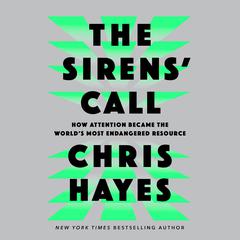 Play Audiobook Sample
Play Audiobook Sample
Where You Go Is Not Who You'll Be: An Antidote to the College Admissions Mania Audiobook
 Play Audiobook Sample
Play Audiobook Sample
Quick Stats About this Audiobook
Total Audiobook Chapters:
Longest Chapter Length:
Shortest Chapter Length:
Average Chapter Length:
Audiobooks by this Author:
Publisher Description
Read award-winning journalist Frank Bruni's New York Times bestseller: an inspiring manifesto about everything wrong with today's frenzied college admissions process and how to make the most of your college years.
Over the last few decades, Americans have turned college admissions into a terrifying and occasionally devastating process, preceded by test prep, tutors, all sorts of stratagems, all kinds of rankings, and a conviction among too many young people that their futures will be determined and their worth established by which schools say yes and which say no.
In Where You Go is Not Who You'll Be, Frank Bruni explains why this mindset is wrong, giving students and their parents a new perspective on this brutal, deeply flawed competition and a path out of the anxiety that it provokes.
Bruni, a bestselling author and a columnist for the New York Times, shows that the Ivy League has no monopoly on corner offices, governors' mansions, or the most prestigious academic and scientific grants. Through statistics, surveys, and the stories of hugely successful people, he demonstrates that many kinds of colleges serve as ideal springboards. And he illuminates how to make the most of them. What matters in the end are students' efforts in and out of the classroom, not the name on their diploma.
Where you go isn't who you'll be. Americans need to hear that--and this indispensable manifesto says it with eloquence and respect for the real promise of higher education.
Download and start listening now!
Awards
-
A New York Times Editor’s Choice
Where You Go Is Not Who You'll Be Listener Reviews
Be the first to write a review about this audiobook!
About Frank Bruni
Frank Bruni is the author of five books, including New York Times bestseller Ambling into History, and co-author of two other books. He has been a prominent journalist for more than three decades, including more than twenty-five years at the New York Times, many of them as a nationally renowned op-ed columnist appearing frequently as a television commentator. He was also a White House correspondent for the New York Times, its Rome bureau chief, and, for five years, its chief restaurant critic. In 2021, he became a full professor at Duke University, teaching media-oriented classes in the school of public policy. He continues to write his popular weekly newsletter for the Times and to produce occasional essays as one of the newspaper’s official contributing opinion writers.








